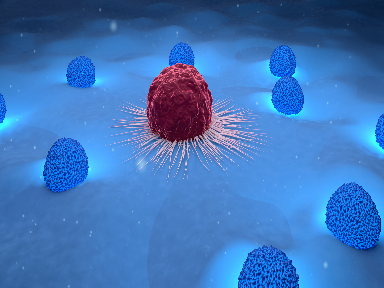prnasiaJune 29, 2021
Tag: RedHill , opaganib , COVID-19
RedHill Biopharma Ltd., a specialty biopharmaceutical company, announced preliminary results of a new preclinical study showing potent inhibition of COVID-19 variants of concern by opaganib (Yeliva®, ABC294640)[1].
Opaganib, a leading novel investigational oral pill in development for the treatment of COVID-19, is a unique host-targeted, dual antiviral and anti-inflammatory drug that acts on the cause and effect of COVID-19. It exerts its antiviral effect by selectively inhibiting sphingosine kinase-2 (SK2), a key enzyme produced in human cells that can be recruited by the virus to support its replication. Following the recently presented positive U.S. Phase 2 study data, opaganib's global 475-patient Phase 2/3 study in hospitalized patients with COVID-19 is fully enrolled and is expected to be completed in the coming weeks.

Working with the University of Louisville Center for Predictive Medicine, opaganib was studied in a 3D tissue model of human bronchial epithelial cells (EpiAirway™) to evaluate the in vitro efficacy of opaganib in inhibiting the Beta (South African) and Gamma (Brazilian) SARS-CoV-2 variants. Preliminary results showed potent inhibition of both the Beta and Gamma variants by opaganib at non-cytotoxic doses.
"The results we have seen with opaganib so far are exciting," said William Severson, Ph.D., Director of Shared Resources for the Center for Predictive Medicine, University of Louisville. "They provide further evidence in support of opaganib's antiviral capabilities and highlight opaganib's potential as an orally-administered treatment for COVID-19 and its continuously emerging variants."
"Opaganib inhibits an enzyme in the COVID-19 patients' cells called sphingosine kinase-2, which the SARS-CoV-2 virus can recruit in order to replicate," said Reza Fathi, PhD., RedHill's Senior VP, R&D. "Opaganib's dual antiviral and anti-inflammatory mechanism of action is independent of mutations in the spike protein. This means we expect opaganib to similarly work against other emerging COVID-19 variants, including the Delta (Indian) variant. Moreover, we are looking forward to seeing the top-line clinical data from the global Phase 2/3 study which is expected to be completed in the coming weeks."
The global Phase 2/3 study of opaganib in COVID-19 has previously received four independent DSMB recommendations to continue following unblinded safety reviews and a futility review. Additionally, an evaluation of the blinded blended intubation and mortality rates to date was encouraging as compared to reported rates of mortality from large platform studies such as RECOVERY, and other studies in similar patient populations[2].
Opaganib, a new chemical entity, is a proprietary, first-in-class, orally-administered, sphingosine kinase-2 (SK2) selective inhibitor, with dual anti-inflammatory and antiviral activity, that is host-targeted and is therefore expected to be effective against emerging viral variants.
Opaganib is being evaluated as a treatment for COVID-19 pneumonia in a global Phase 2/3 study, which recently completed enrollment, and has demonstrated positive safety and efficacy signals in preliminary top-line data from the 40-patient U.S. Phase 2 study.
Opaganib demonstrated potent inhibition of viral replication against SARS-CoV-2, the virus that causes COVID-19, in an in vitro model of human lung bronchial tissue. Additionally, preclinical in vivo studies have demonstrated opaganib's potential to ameliorate inflammatory lung disorders, such as pneumonia, and has shown decreased fatality rates from influenza virus infection and ameliorated Pseudomonas aeruginosa-induced lung injury by reducing the levels of IL-6 and TNF-alpha in bronchoalveolar lavage fluids[3].
Opaganib has also received Orphan Drug designation from the U.S. FDA for the treatment of cholangiocarcinoma and is being evaluated in a Phase 2a study in advanced cholangiocarcinoma and in a Phase 2 study in prostate cancer.
The ongoing studies with opaganib are registered on www.ClinicalTrials.gov, a web-based service by the U.S. National Institute of Health, which provides public access to information on publicly and privately supported clinical studies.
RedHill Biopharma Ltd. (Nasdaq: RDHL) is a specialty biopharmaceutical company primarily focused on gastrointestinal and infectious diseases. RedHill promotes the gastrointestinal drugs, Movantik® for opioid-induced constipation in adults[4], Talicia® for the treatment of Helicobacter pylori (H. pylori) infection in adults[5], and Aemcolo® for the treatment of travelers' diarrhea in adults[6]. RedHill's key clinical late-stage development programs include: (i) RHB-204, with an ongoing Phase 3 study for pulmonary nontuberculous mycobacteria (NTM) disease; (ii) opaganib (Yeliva®, ABC294640), a first-in-class SK2 selective inhibitor targeting multiple indications with positive Phase 2 COVID-19 data and an ongoing Phase 2/3 program for COVID-19 and Phase 2 studies for prostate cancer and cholangiocarcinoma ongoing; (iii) RHB-107 (upamostat), a serine protease inhibitor in a U.S. Phase 2/3 study as treatment for symptomatic COVID-19, and targeting multiple other cancer and inflammatory gastrointestinal diseases; (iv) RHB-104, with positive results from a first Phase 3 study for Crohn's disease; (v) RHB-102 (Bekinda®), with positive results from a Phase 3 study for acute gastroenteritis and gastritis and positive results from a Phase 2 study for IBS-D; and (vi) RHB-106, an encapsulated bowel preparation.
[1] Opaganib is an investigational new drug, not available for commercial distribution.
[2] Based on preliminary blinded blended data from 463 patients. The Company did not conduct a head-to-head comparison study in the same patient population. The theoretical comparison between the global Phase 2/3 study with opaganib and reported rates of mortality from large platform studies such as RECOVERY, and other studies in similar patient populations, serves as a general benchmark and should not be construed as a direct and/or applicable comparison as if the Company conducted a head-to-head comparison study.
[3] Xia C. et al. Transient inhibition of sphingosine kinases confers protection to influenza A virus infected mice. Antiviral Res. 2018 Oct; 158:171-177. Ebenezer DL et al. Pseudomonas aeruginosa stimulates nuclear sphingosine-1-phosphate generation and epigenetic regulation of lung inflammatory injury. Thorax. 2019 Jun;74(6):579-591.
[4] Full prescribing information for Movantik® (naloxegol) is available at: www.Movantik.com.
[5] Full prescribing information for Talicia® (omeprazole magnesium, amoxicillin and rifabutin) is available at: www.Talicia.com.
[6] Full prescribing information for Aemcolo® (rifamycin) is available at: www.Aemcolo.com.


Contact Us
Tel: (+86) 400 610 1188
WhatsApp/Telegram/Wechat: +86 13621645194
Follow Us:




 Pharma Sources Insight January 2025
Pharma Sources Insight January 2025


